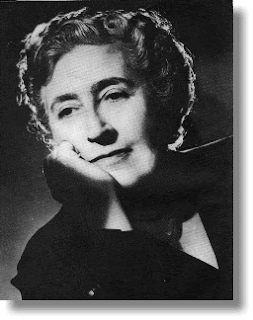God's Generals
by Roberts Liardon
Reviewed by Aaron DeWeese
I had no idea the church Body had such a colorful historicity. This book deals with that history in the period of the late 19th century to the late 20th century. I don't know why we do not reference these people and the movements they were part of more often. How the past fades, the past fades in our memories.
I am most impressed with the people who have the least flaws. The people who seemed to truly seek God's will in their life for the entire span of their lives — they ran with patience.
John Alexander Dowie was portrayed as an immensely powerful man, who was also immensely stubborn. He held Chicago in the palm of his hand, for a season. His stubbornness was they key to his success and his failure. How a man could come to believe he was Elijah, then on his death bed reveal with his last words his belief that he was Jesus, is simply beyond me. Perhaps he had had a stroke—surely he could not become so deluded naturally. Zion, Illinois is a place I would like to visit one day, simply out of curiosity.
Marie Woodworth-Etter was portrayed as the most saintly person in the book. I believe it is for this reason that she held such influence on people—especially future ministers. The trance phenomenon surrounding her ministry is fascinating. I would like to find more books—and wow, would I like to find her own rare works which Liardon mentioned he has copies of!
Evan Roberts was a strange man. He so sought to live in the Spirit that I see him as a man that was lost in a fog in this world. How bizarre was his relationship with Mrs. Jessie Penn-Lewis! Success brings them out of the woodwork. If only it were not for her, I wonder how Roberts' life would have differed. I too wonder if the dark poetry found upon his death in his notebook has ever been published.
Charles F. Parham, in my opinion, should have stayed away from Zion, Illinois. Wilbur Voliva certainly had it in for him with his sodomy accusation. So many of these men and women seemed to thrive on adversity, seeking it until it finally did them in. Persecution seems to do very many Christians in. Here are my thoughts on the matter: Had Parham's enemies had real proof of his being arrested for sodomy, they would not have posted signed confessions, but the actual police report.
William J. Seymour and Azusa Street are probably the most widely circulated nouns in charismatic circles. This was the first I had really delved into the story. I am shocked at the ultimate fate of the Azusa Street Mission. It seemingly all hinged on Seymour's interpretation of sanctification. I believe the actual consequences that stemmed from his belief, show how his doctrine was flawed. Here too is a point—padlocking is indirect criticism, with much more severe undertones than direct criticism. Seymour wasn't quite logical when it came to this.
John G. Lake was one of the most impressive figures here, in my opinion. It is very sad what took place in Africa. Out of Africa...
Smith Wigglesworth was a very impressive fellow as well. His belief that "True faith confronts, and it is ignited by initiative" motivated him to achieve amazing acts. Faith + Compassion = miracles.
Aimee Semple McPherson was very strange — Hollywood strange made even more strange by Pentecostal strangeness. A fascinating life.
Kathryn Kuhlman is contained within my mother's library. I'll have to investigate. Poor Kathryn finally rid herself of "man problems". I did not know that she had risen to such secular realms in the late 20th century. Those clips too would be interesting to dig up.
William Branham is one of the most intriguing people in the book. It is the strange lights, the angel beside him, the paranormal picture, the vibrating hand. The supernatural surrounded this guy; and yet he wanted to teach. He felt, looking around him, there was not enough substance. Tragic. I believe had he gone about being taught in a proper way, God would have given him his heart's desire - to be a teacher. Unfortunately, in this area Branham was an idiot, from the Greek "idiote" —full of his own foolish thoughts. The picture with the anomaly over Branham's head is chilling. I would like to collect more on the life and ministry of Branham.
Jack Coe was quite a guy for God. I find it very amusing that the US Army kept sticking him in psych wards. This didn't phase him though! It was also entertaining, Coe's obsession with tent-size.
My Uncle, The late Reverend Boyd McClaren traveled with A.A. Allen and W.V. Grant. He was Allen's morning speaker. He eventually left Allen due to his drinking. It is my opinion that Liardon does not have very good information pertaining to Allen's drinking. He downplays it, making it seem to be mostly a conspiracy against his ministry. Allen had quite a ministry, whether he was a raging alcoholic or no.
I have not touched upon the true substance of this book. That is, God's calling, the answer, stepping out in faith, and where that leads to. By the evidence provided, we can believe that it leads to being filled with the Holy Spirit, and miracles of an amazing variety. The stories within this volume are priceless.












































_Eug%C3%A9nie_Grandet_(page_249).jpg)





